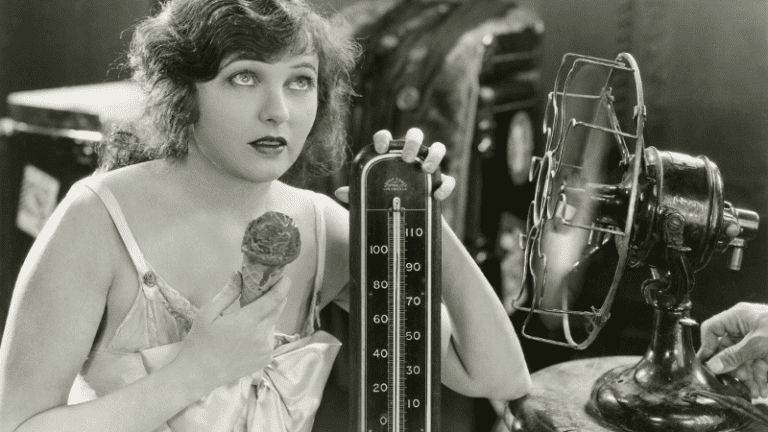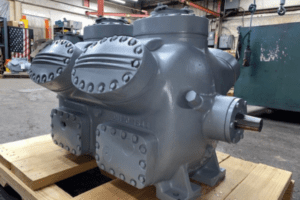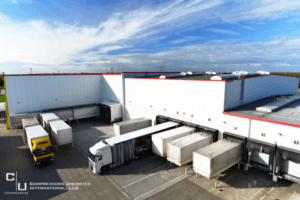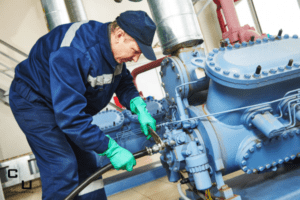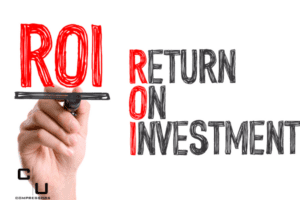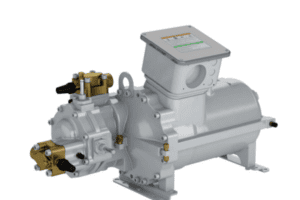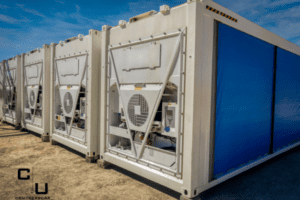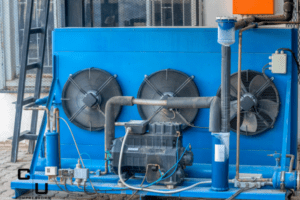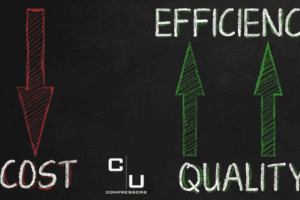As temperatures skyrocket, it’s more important to make sure your commercial HVAC is in good condition. When problems strike your commercial HVAC compressor, you could find yourself with no cooling and a lot of angry co-workers, customers, or tenants to handle.
Heat waves are now common throughout the summer months, and recent summers in the U.S. have seen many records broken. Forbes reported on eight heat records shattered in the last eight years, which were the hottest on record. It’s crucial to make sure your equipment can handle the heat, as there’s no end in sight.
When summer turns up the heat, commercial HVAC compressors are at the greatest risk. They are in a direct fight against the outside ambient temperature to keep you cool. They can burn out faster than a comparable compressor in a refrigeration system, which only has to deal with waste heat to stay functional.
It’s essential to keep an eye out for signs that your compressor can’t beat the heat!
Is Your Commercial HVAC Compressor “Quiet Quitting?” Look Out for These Signs
When an HVAC compressor runs into issues, you’ll probably hear about it from others in the building before too long. Ideally, though, you should take action before that point. You might only get a day or two of warning from your compressor before performance is impacted. From there, an emergency replacement can happen fast.
Let’s consider some of the biggest signs to watch out for:
1. Inadequate Cooling
As an HVAC system works too hard, it leads to a chain reaction that can damage multiple parts of the system, including the condenser and finally the compressor itself. Air can still be blowing – and, indeed, it can still be cold – without meeting the cooling needs of the building.
Before examining the compressor, make sure you have adequate refrigerant. Running out of refrigerant early is a common mishap usually attributable to a small leak. If refrigerant isn’t the issue, the next thing to look at is the state of your air filters. When both of these are ruled out, the compressor may be at fault.
2. Rising Energy Use
It’s not out of the ordinary to see a noticeable increase in HVAC energy use during the summer, but don’t take it at face value. When your HVAC system components become inefficient, they work much harder to deliver your required level of cooling. Bills that go up 15% or more are indicative of more than a seasonal spike.
Sometimes, a commercial HVAC may be running too hard because it is not getting accurate information about the ambient temperature. If you have a smart thermostat, it’s a wise idea to make sure the sensors are clean and not in need of replacement. Calibrate your thermostat regularly to save money on cooling.
3. Continuous Cycling or Continuous Cooling
What happens when a commercial HVAC system no longer has the throughput or efficiency necessary to reach your target temperature? Just like a residential HVAC system, it keeps trying. When a system must run for hours non-stop to get to the desired result, it’s much more likely your condenser will completely freeze through.
Continuous cycling on and off is usually indicative of the same problem, but the system is registering the target temperature for at least a minute or two on a regular basis. Whenever the system cycles on, it draws a notable amount of power, so this is not necessarily a better situation to be in.
4. Tripped Breakers and Blown Fuses
This is a tough one, because either of these issues could indicate a serious electrical issue somewhere in your wiring system. It’s valuable to perform root cause analysis on electrical problems because just replacing your compressor isn’t enough: Unless the underlying problem is resolved, the new compressor will also suffer from improper voltages and other glitches that can shorten its working life from years to months.
5. Excessive Vibration or Noise
It’s normal for any compressor to experience some vibration on startup, even those screw compressors and reciprocating compressors designed to minimize the noise in operation. Be familiar with your compressor’s startup and how it looks and sounds. Be wary of anything unusual and perform a maintenance review as soon as you’ve noticed a difference. It won’t go away on its own, and it is likely to only get worse over time.
Don’t Wait for Your Commercial HVAC Compressor to Break Down – Get a Remanufactured Compressor
The worst-case scenario is an unexpected commercial HVAC failure. With a remanufactured commercial HVAC compressor, you can get the replacement unit you need at a fraction of the cost and months earlier.
If you’ve noticed signs that your commercial HVAC compressor can’t beat the heat, don’t sweat it. Take steps now to get a replacement so you can keep cool!

